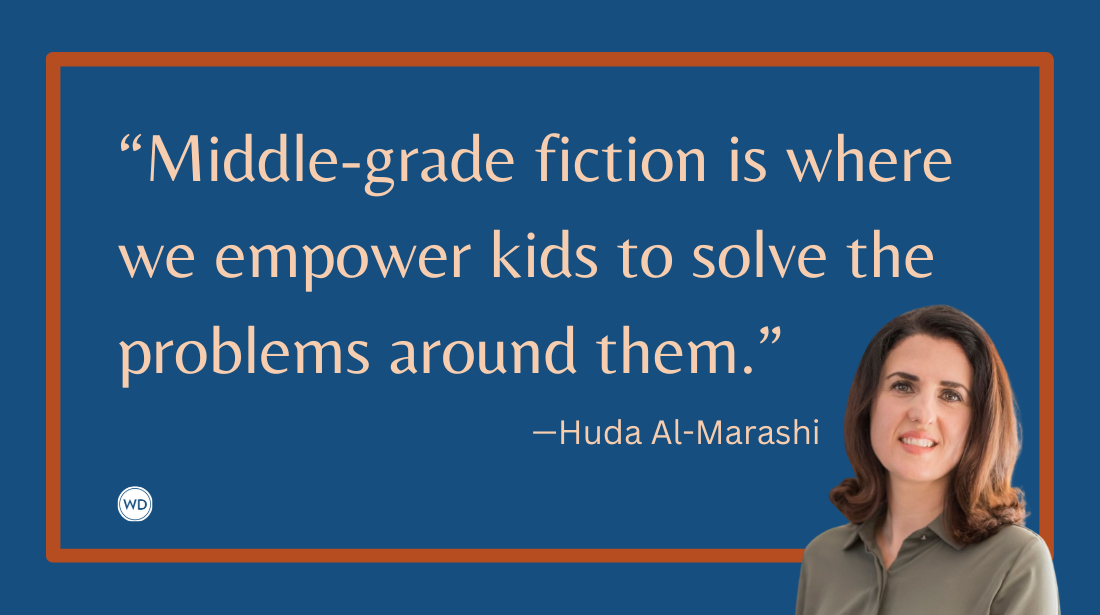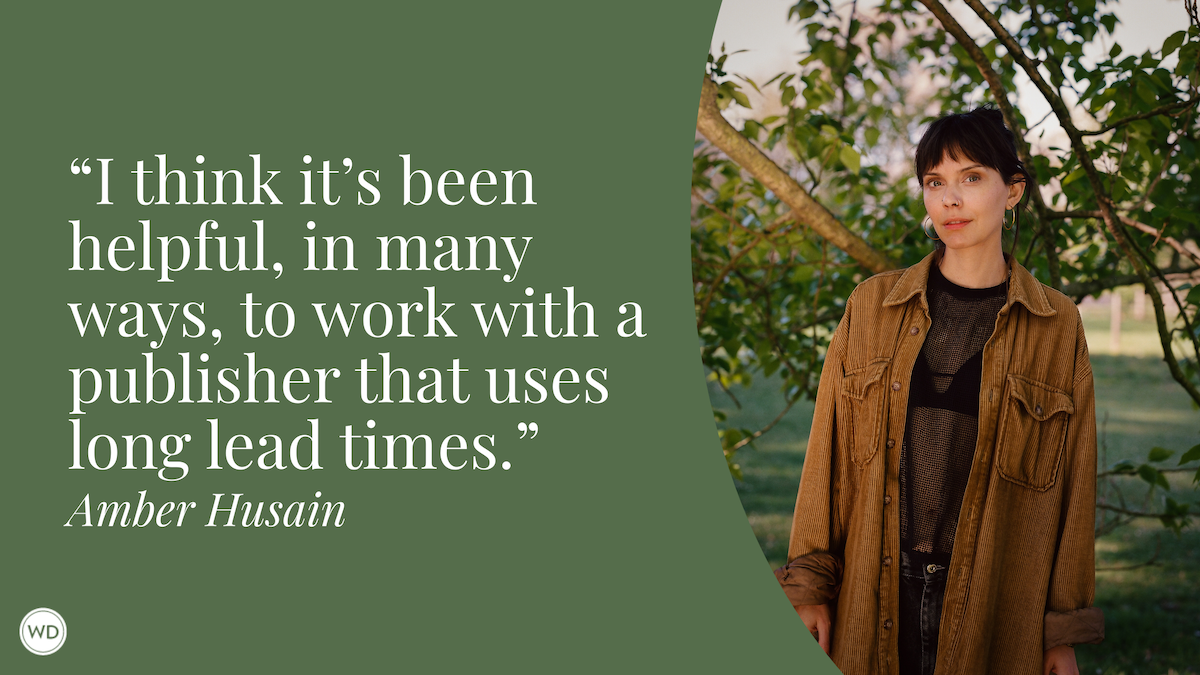Kayla Cottingham: On Writing Within a Preexisting IP
In this interview, author Kayla Cottingham discusses the lesson in compromise while writing her new middle-grade horror novel, The Tale of the Vanishing Circus.
Kayla Cottingham is a YA author and librarian. Her first book, My Dearest Darkest, was a New York Times and Publisher’s Weekly bestseller. Originally from Salt Lake City, Cottingham lives in Boston where she loves to go hiking in the woods, play RPGs, and snuggle on the couch with her ridiculously large black cat, Squid. Follow her on X (Twitter), Instagram, and Bluesky.
In this interview, Kayla discusses the lesson in compromise while writing her new middle-grade horror novel, The Tale of the Vanishing Circus, her advice for other writers, and more.
Name: Kayla Cottingham
Literary agent: Erica Bauman
Book title: The Tale of the Vanishing Circus (Are You Afraid of the Dark? #3)
Publisher: Abrams
Release date: November 25, 2025
Genre/category: Middle-grade horror
Previous titles: My Dearest Darkest, This Delicious Death, Practical Rules for Cursed Witches, Extraordinary Quests for Amateur Witches
Elevator pitch: After sneaking out to attend a mysterious circus in the woods behind their homes, two girls find themselves in a race against time to escape before they become trapped for eternity.
What prompted you to write this book?
The publisher approached me with a logline for a potential project and asked if it was something that I would be interested in writing. I connected with the concept immediately and signed on to the project a few days later.
How long did it take to go from idea to publication? And did the idea change during the process?
It was fast compared to some other projects I’ve worked on—I first signed on in July of 2024, so it was about 16 months. We spent the first five months of that pitching and outlining different versions of the story before settling on one that everyone agreed on. When I first pitched my expanded outline, the story involved a younger sister trying to free her older sibling from the circus after being kidnapped, but it later shifted to be about two best friends going to the circus and being recruited by a mysterious teenage ringleader. While certain elements were always present, like the main character being a high-achieving skeptic of the supernatural who was looking for a way to escape her humdrum hometown, a lot wound up changing at the behest of the publisher and Nickelodeon/Paramount.
Were there any surprises or learning moments in the publishing process for this title?
This was my first time writing a book that took place in a preexisting property’s universe, so it was a new challenge for me. Any time you write IP (intellectual property), half the challenge is making sure that everything fits in nicely with the preexisting canon of that universe. As I think would be the case for any artist, it can be a challenge to give up part of your creative control, so it was certainly a lesson in compromise for me.
Were there any surprises in the writing process for this book?
This was my first time writing a book where each step, from outlining to drafting to revision, required approval from multiple entities. There was the in-house editorial team and then a representative from Paramount who had to give the book their blessing before moving to the next steps. That meant that ideas being nixed, concepts being changed, and last-minute additions were very much in the realm of possibility. However, as a result, I think writing this book really helped me tighten up my own outlining/revision process. IP forces you to streamline your writing, and I found myself appreciating it more and more as the project went on.
What do you hope readers will get out of your book?
Circus, in a lot of ways, is a story about the transitional period between childhood and teenhood. That change can impact things like one’s identity, friendships, and future plans/goals. I hope that younger readers will be able to see their own experience in it and be comforted by the knowledge that they’re not alone in those feelings. For older readers, I hope it provides nostalgia—not only for that time in life, but for the kind of scares and surprises that defined the original Are You Afraid of the Dark? series.
If you could share one piece of advice with other writers, what would it be?
It’s important to know when to push back on editorial feedback and when to put your creative ego aside, so to speak. As writers, it can be hard to cut something in a story that you really enjoyed, but sometimes it’s necessary to make the manuscript better. That said, if you feel super strongly about something, make sure your voice is heard! You’ll regret it later if you don’t.








